
Mamma Mia! is a jukebox musical written by British playwright Catherine Johnson based on songs recorded by Swedish group ABBA and composed by members Benny Andersson and Björn Ulvaeus. The title of the musical is taken from the group's 1975 chart-topper "Mamma Mia". Ulvaeus and Andersson were involved in the development of the show from the beginning, while singer Anni-Frid Lyngstad was involved financially in the production and also appeared at many of the premieres around the world.

Annie Get Your Gun is a musical with lyrics and music by Irving Berlin and a book by Dorothy Fields and her brother Herbert Fields. The story is a fictionalized version of the life of Annie Oakley (1860–1926), a sharpshooter who starred in Buffalo Bill's Wild West, and her romance with sharpshooter Frank E. Butler (1847–1926).
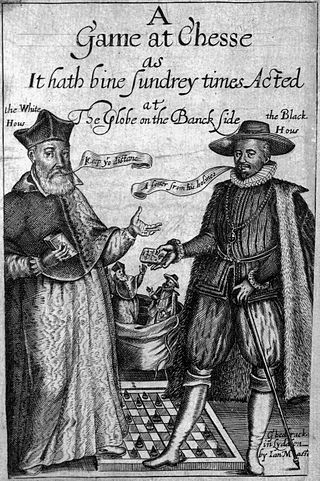
A Game at Chess is a comic satirical play by Thomas Middleton, first staged in August 1624 by the King's Men at the Globe Theatre. The play is notable for its political content, dramatizing a conflict between Spain and England.

Fresh is a 1994 American crime drama film written and directed by Boaz Yakin in his directorial debut, also produced by Randy Ostrow and Lawrence Bender. It was scored by Stewart Copeland, a member of the Police. The story revolves around a preteen boy named Michael, nicknamed Fresh, who runs drugs for gangsters. Inspired by the chess lessons of his father, an alcoholic speed-chess master, Fresh devises and executes a brilliant plan to extricate himself and his drug-addicted sister from their hopeless lives.
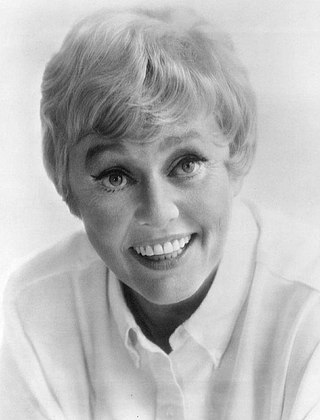
Patricia Ann Carroll was an American actress and comedian. She voiced Ursula in The Little Mermaid and appeared in CBS's The Danny Thomas Show, ABC's Laverne & Shirley, and NBC's ER. Carroll was an Emmy, Drama Desk, and Grammy Award winner, as well as a Tony Award nominee.
American Buffalo is a 1975 play by American playwright David Mamet that had its premiere in a showcase production at the Goodman Theatre, Chicago. After two additional showcase productions, it opened on Broadway in 1977.

Goin' South is a 1978 American Western comedy film directed by and starring Jack Nicholson, with Mary Steenburgen, Christopher Lloyd, John Belushi, Richard Bradford, Veronica Cartwright, Danny DeVito and Ed Begley Jr.
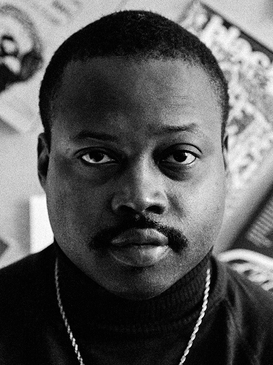
Edward Artie Bullins, sometimes publishing as Kingsley B. Bass Jr, was an American playwright. He won awards including the New York Drama Critics' Circle Award and several Obie Awards. Bullins was associated with the Black Arts Movement and the Black Panther Party, for which he was the minister of culture in the 1960s.

A Bucket of Blood is a 1995 American comedy horror television film. A remake of the 1959 film of the same name, it follows the original closely, adapting it to a contemporary setting. The film was directed by comedian Michael McDonald, produced by Roger Corman, and co-written by McDonald and Brendan Broderick, based on the 1959 screenplay by Charles B. Griffith.
"Sonny's Blues" is a 1957 short story written by James Baldwin, originally published in Partisan Review. The story contains the recollections of a black algebra teacher in 1950s Harlem as he reacts to his brother Sonny's drug addiction, arrest, and recovery. Baldwin republished the work in the 1965 short story collection Going to Meet the Man.
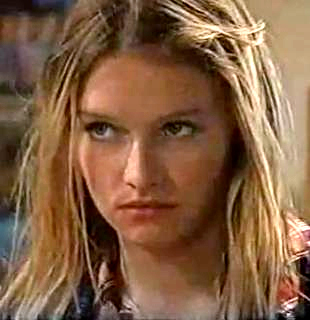
Justine Welles is a fictional character from the Australian soap opera Home and Away, played by Bree Desborough. She made her first on-screen appearance on 5 June 1997 and departed on 7 April 2000.

March of the Falsettos is a 1981 musical with a book, lyrics, and music by William Finn. It is the second in a trilogy of musicals, preceded by In Trousers and followed by Falsettoland. March of the Falsettos and Falsettoland later formed the first and second act respectively of the 1992 musical Falsettos.
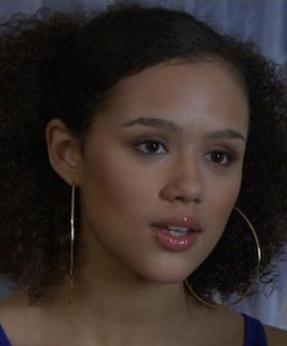
Sasha Valentine is a fictional character from the British Channel 4 soap opera Hollyoaks, played by Nathalie Emmanuel. Sasha first appeared on-screen on 17 July 2006 as part of the newly introduced Valentine family. Sasha has been at the centre of many high-profile storylines including use of recreational drugs, a heroin addiction and a subsequent overdose, prostitution, a victim of a series of violent attacks, portraying a gangster's moll and binge drinking. In March 2010, Paul Marquess announced that 11 characters are to depart the show which included Sasha. Although it was initially reported Emmanuel was axed, Ricky Whittle confirmed she had planned to leave at the end of her contract. Emmanuel left in 2010 and was later credited on 1 December 2010 for a flashback episode.

Elizabeth "Effy" Stonem is a fictional character in the television series Skins, played by Kaya Scodelario. She appears in all of the first four series, as well as the seventh series, and appears in the most episodes (27). Kaya Scodelario was included in Entertainment Weekly's 2009 "Summer Must List", being named "Bad Girl" for her portrayal of Effy. She was included in AfterEllen.com's Top 50 Favorite Female TV Characters.

The White King is a fictional character who appears in Lewis Carroll's 1871 fantasy novel Through the Looking-Glass. Aside from Alice herself, he is one of the earliest chesspieces that are introduced into the story. Although he does not interact with Alice as much as the White Queen does, because Alice becomes a pawn on his side of the Chess-game, he is, on some levels, the most important character within the story at least as far as the game is concerned. He is not to be confused with the King of Hearts from Alice's Adventures in Wonderland.
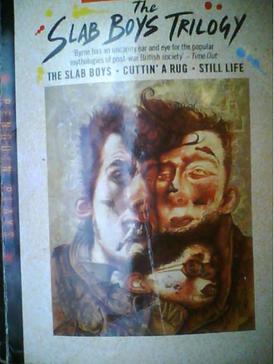
The Slab Boys Trilogy is a set of three plays by the Scottish playwright John Byrne. The trilogy was originally known as Paisley Patterns. The three plays which make up the trilogy are: The Slab Boys, Cuttin' a Rug, and Still Life. The trilogy tells the story of a group of young, urban, working-class Scots during the period 1957–1972. The Slab Boys Trilogy was revived in 2003 by the Traverse Theatre in Edinburgh starring Paul Thomas Hickey and Iain Robertson in the lead roles. This is the first time that the Traverse Theatre have ever done a revival and it was received to great critical success. In April 2008, the Traverse Theatre premièred Nova Scotia, the fourth part of The Slab Boys story which follows the characters of Phil, Spanky and Lucille into the 21st century.
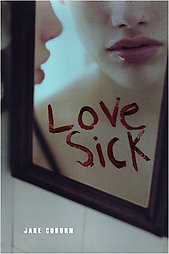
Love Sick is a novel by Jake Coburn, first published on September 22, 2005 by Dutton Juvenile.
George W. Williams was a vaudeville performer and recording artist in the United States. He recorded several songs with Bessie Brown his wife. They were one of the comedy duos on the TOBA circuit.

Faking Bad: The Unauthorized 'Breaking Bad' Parody Methsical is a 2018 parody musical with music, lyrics and book by Rob Gathercole based on AMC's Breaking Bad created by Vince Gilligan. The story shows down-on-his-luck father and chemistry teacher, Walter White's descent into the world of drug dealing as he becomes the feared druglord "Heisenberg". The musical condenses the entire plot of Breaking Bad down to approximately 90 minutes with a heightened sense of camp and satire. Production began in 2018 when Gathercole created a Kickstarter to help fund the project and raised £1,877 of the £1,500 goal.















